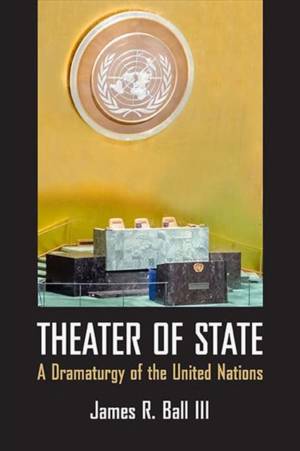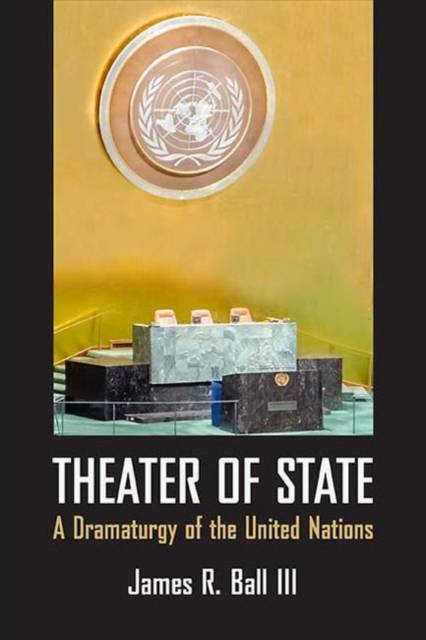
- Retrait gratuit dans votre magasin Club
- 7.000.000 titres dans notre catalogue
- Payer en toute sécurité
- Toujours un magasin près de chez vous
- Retrait gratuit dans votre magasin Club
- 7.000.0000 titres dans notre catalogue
- Payer en toute sécurité
- Toujours un magasin près de chez vous
151,45 €
+ 302 points
Format
Description
In this innovative study of performance in international relations, James R. Ball III asks why states and their representatives come to the United Nations to perform for a global audience and how those audiences may intervene in the spectacle of global politics. Theater of State looks at key spaces in which global politics play out: in debating forums of the UN, at the International Criminal Court in The Hague, and in peacekeeping operations in Africa and the Middle East, as well as in a variety of related media productions. Ball argues that culture and politics form a unified field organized by the theatricality of its actors and the engaged spectatorship of its audiences. He provides a theory of global political spectatorship: of how the world watches itself in institutions and beyond, and of what citizens and diplomats do by watching. This study of the lived experience of spectacular politics on the world stage draws on theories of theater, performance, and politics to offer new ways of approaching issues of war, cosmopolitanism, international justice, governance, and activism. Situated at the nexus of two disciplines, performance studies and political science, this volume encourages conversations between the two so that each might offer lessons to the other.
Spécifications
Parties prenantes
- Auteur(s) :
- Editeur:
Contenu
- Nombre de pages :
- 224
- Langue:
- Anglais
Caractéristiques
- EAN:
- 9780810141124
- Date de parution :
- 01-01-20
- Format:
- Livre relié
- Format numérique:
- Genaaid
- Dimensions :
- 157 mm x 231 mm
- Poids :
- 458 g

Les avis
Nous publions uniquement les avis qui respectent les conditions requises. Consultez nos conditions pour les avis.






